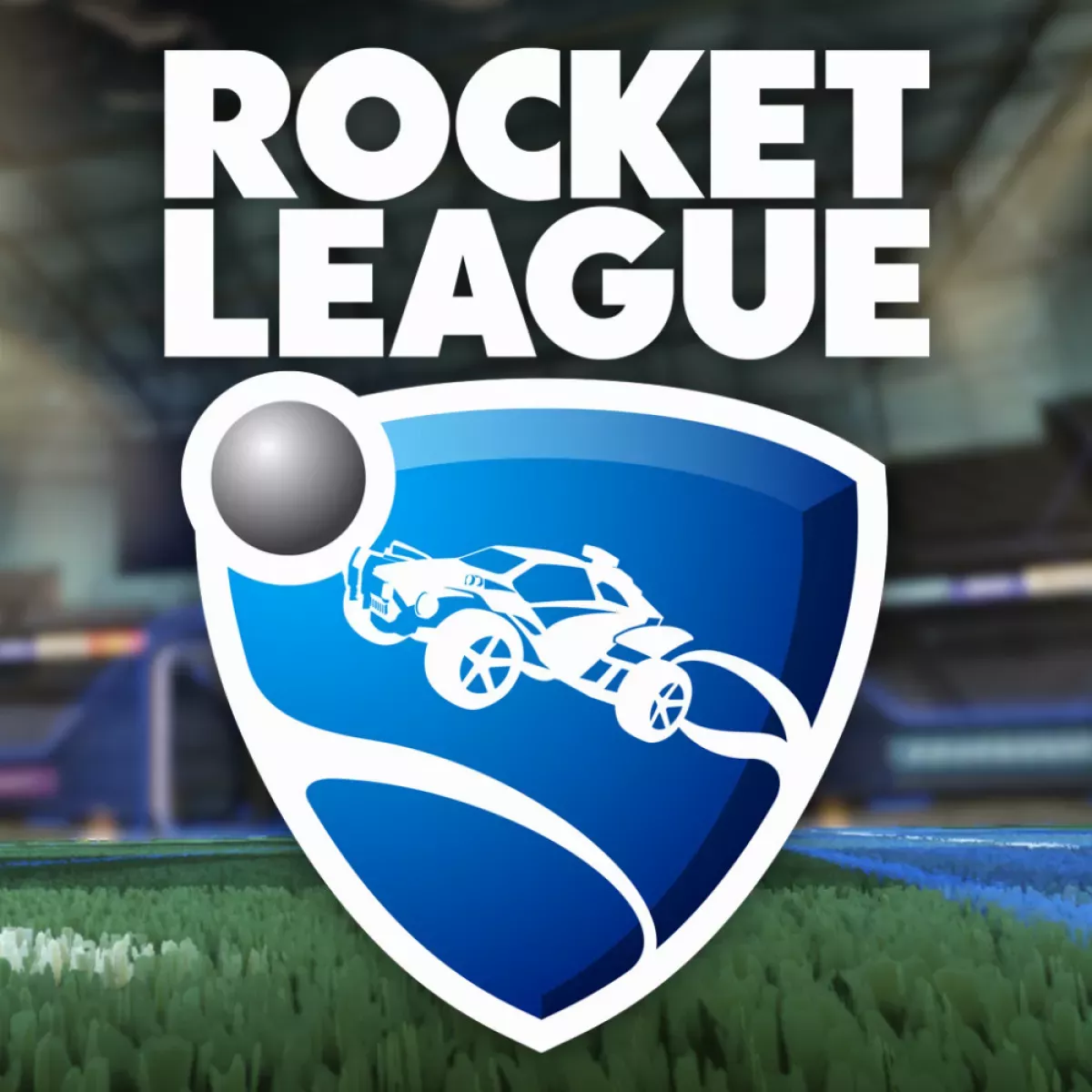Rocket League, released in 2015 by Psyonix, is a vehicular soccer video game. Players control rocket-powered cars to hit a ball into their opponent's goal, scoring points. Matches feature up to eight players divided into two teams. The game offers both single-player and multiplayer modes, supporting local and online play, including cross-platform functionality. It is a sequel to Supersonic Acrobatic Rocket-Powered Battle-Cars.
1972: Heatseeker Mode Compared to Pong
In May 2020, the Rocket League limited-time game mode Heatseeker, which features a curving ball that magnetizes toward both ends of the field, drew comparisons to the 1972 table tennis sports game Pong.
2003: Unreal Tournament 2003 Modification
In 2003, Dave Hagewood, Psyonix' founder, created modifications for Unreal Tournament 2003, expanding the vehicle-based gameplay into a new game mode called Onslaught.
2004: Onslaught Mode Incorporated into Unreal Tournament 2004
In 2004, Dave Hagewood was hired by Epic Games to incorporate the Onslaught mode as an official part of Unreal Tournament 2004.
2008: Supersonic Acrobatic Rocket-Powered Battle-Cars Developed
In 2008, Psyonix developed Supersonic Acrobatic Rocket-Powered Battle-Cars for the PlayStation 3, a precursor to Rocket League.
2011: Pitch to Electronic Arts
In 2011, Psyonix unsuccessfully attempted to pitch the idea for a Battle-Cars sequel to Electronic Arts.
2013: Formal Development of Rocket League Begins
Around 2013, Psyonix began formal development of Rocket League, refining the gameplay from Battle-Cars based on criticism and fan input.
2013: Rocket League Development Start
Around 2013, full development of Rocket League started, taking around two years to develop.
February 2014: Rocket League Announcement
In February 2014, Rocket League was officially announced as the sequel to Battle-Cars. Psyonix adopted a marketing strategy that involved engaging with YouTube and Twitch streamers, as well as early alpha and beta testing to spread the word about the game.
November 2014: Original Release Deadline Missed
The original release date was planned for November 2014, but was missed to improve matchmaking, servers, frame rates, and remove free-to-play elements.
July 1, 2015: Original Soundtrack Released
On July 1, 2015, the original soundtrack for Rocket League was released both physically and digitally. It contains original compositions by Psyonix sound designer Mike Ault, as well as contributions by Ault's electronic music group, Hollywood Principle.
July 7, 2015: Rocket League Public Release
On July 7, 2015, Rocket League was publicly released for PlayStation 4 and Windows, which led to over 183,000 unique players within a week due to being part of Instant Game Collection on PlayStation 4 and free for PlayStation Plus subscribers.
July 11, 2015: 120,000 Concurrent Players
On July 11, 2015, Psyonix announced approximately 120,000 concurrent Rocket League players across PlayStation 4 and Windows platforms.
July 2015: Rocket League Initial Release
In July 2015, Rocket League was first released on PlayStation 4 and Windows.
August 2015: One Million Copies Sold on Steam
In August 2015, Psyonix announced that Rocket League had sold over one million copies on Steam.
August 2015: Supersonic Fury DLC Released
In August 2015, Rocket League's first DLC pack, titled Supersonic Fury, was released alongside the new arena Utopia Coliseum. It contained exclusive cosmetics, including two new cars, rocket boosts, wheels, five paint finishes, and twelve decals for both new cars. Also in August 2015, the game was announced to be ported to macOS and Linux.
September 2015: Pro Rocket League Season 1 Announcement
In September 2015, Major League Gaming (MLG) announced the first season of the Pro Rocket League, which was held in September through early October.
September 2015: Cross-Promotion with Chivalry: Medieval Warfare
In September 2015, Psyonix held a cross-promotion with Torn Banner Studios, adding two free new flags themed after Torn Banner's Chivalry: Medieval Warfare to Rocket League.
October 2015: Revenge of the Battle-Cars DLC Released
In October 2015, Rocket League's second DLC pack, titled Revenge of the Battle-Cars, was released, adding two more cars from Supersonic Acrobatic Rocket-Powered Battle-Cars and exclusive cosmetics. From October 18 to November 2, players had a chance to collect six Halloween-themed items.
October 21, 2015: DeLorean Time Machine DLC Released
On October 21, 2015, corresponding with Back to the Future Day, the DeLorean time machine from the Back to the Future film franchise was released as a separate DLC for Rocket League.
November 2015: Free Update Adds Mutator Mode
In November 2015, a free update added the ability to Mutate a match, allowing for different custom presets and match settings, including a low gravity mode and a cubed ball.
December 2015: Holiday-Themed Event Introduced
During December 2015, Psyonix introduced an ice hockey-based mutation alongside a special event featuring holiday-themed decorative items, replacing the normal ball with a hockey puck and changing the floor to ice.
December 2015: Chaos Run DLC Released
In December 2015, Rocket League's third DLC pack, titled Chaos Run, was released, adding two more cars and more cosmetics. A new arena called Wasteland, inspired by the Mad Max films, was released for free alongside the DLC.
2015: Game Awards 2015: Xbox One Port Announcement
At The Game Awards in 2015, the announcement was made that Rocket League would be ported to Xbox One.
2015: Holiday Season Update
During the 2015 holiday season, Rocket League received an update that replaced mutator matches with 'Snow Day', an ice hockey-inspired mode.
2015: Rocket League Wins Awards After E3
Following the E3 2015 event, Rocket League received multiple nominations and won several awards, including PlayStation Universe's "Best Sports Game of E3" and Gaming Trend's "Best Multiplayer Game of E3". At The Game Awards 2015 in December, Rocket League won Best Independent Game and Best Sports/Racing Game.
2015: Rocket League Release
In 2015, Psyonix released Rocket League, a vehicular soccer video game where players control rocket-powered vehicles to hit a ball into their opponent's goal. The game features both single-player and multiplayer modes.
February 10, 2016: Snow Day Permanently Added
On February 10, 2016, the 'Snow Day' ice hockey mode was permanently added to Rocket League's mutator settings for private matches and exhibition games, after a positive reception from its initial holiday release.
February 2016: D.I.C.E. Awards
At the 19th Annual D.I.C.E. Awards in February 2016, Rocket League was awarded Sports Game of the Year, Outstanding Achievement in Online Gameplay, and the D.I.C.E. Sprite Award by the Academy of Interactive Arts & Sciences.
February 2016: Esports Focus
In February 2016, Psyonix observed the popularity of Rocket League matches on Twitch and other live streaming platforms and began focusing on using the game more in esports.
February 2016: Rocket League Earns $70 Million in Revenue
In February 2016, Psyonix reported that Rocket League had earned $70 million in revenue with at least four million copies sold, excluding PlayStation downloads. The game had at least 12 million unique players, including those who played during free play offers like PlayStation Plus.
February 2016: Rocket Labs Playlist Added
In February 2016, Rocket Labs, a new game playlist was added to offer new experimental maps to players as a means to gauge feedback and interest in a map before adding it to the game's standard map playlist.
February 2016: Collector's Edition Announcement
In February 2016, the announcement of a retail version of Rocket League, the Collector's Edition, was made.
February 24, 2016: Ice Hockey Mode Added Permanently
On February 24, 2016, the ice hockey mode that was introduced in December 2015 was permanently added to the standard playlists due to its popularity.
March 2016: Development Insights
In March 2016, Davis of Psyonix discussed Rocket League's development, noting the previous game's name as 'the worst game name of all time'.
March 2016: Rocket League Championship Series Announcement
In March 2016, Psyonix announced the first Rocket League Championship Series, with the finals taking place in August 2016 with a $55,000 prize pool.
April 2016: Basketball Playlist Added
In April 2016, the developers added the basketball-based playlist to the standard playlists.
April 2016: Themed Content from Goat Simulator and Euro Truck Simulator Added
In April 2016, themed content based on Goat Simulator and Euro Truck Simulator were added to Rocket League as part of cross-promotional deals with those games.
April 25, 2016: Hoops Game Mode Added
On April 25, 2016, Psyonix added 'Hoops', a basketball-based game mode, to Rocket League.
May 2016: Cross-Platform Play Added
In May 2016, Rocket League added the cross-platform play feature in an update, allowing Windows and Xbox One players to play together.
June 2016: Neo Tokyo Arena Added
In June 2016, a new arena, Neo Tokyo, based on the Rocket Labs layout Underpass, was added to Rocket League via an update. Cosmetic items were awarded at the end of matches with various rarity grades, and players gained the ability to trade multiple items of the same type and rarity grade to obtain an item of a better rarity grade. Painted and certified items and eight new achievements were also introduced.
June 24, 2016: Collector's Edition Release in Europe
On June 24, 2016, the Collector's Edition of Rocket League was released in Europe. It included the first three DLC packs for free, and four additional cars available as digital download on July 18.
July 5, 2016: Collector's Edition Release in North America
On July 5, 2016, the Collector's Edition of Rocket League was released in North America. It was published and distributed by 505 Games, and included the first three downloadable content packs for free.
July 7, 2016: Second Volume of Soundtrack Released
On July 7, 2016, the second volume of the Rocket League soundtrack was released, compiling new songs added to the game with post-release updates.
July 2016: 6.2 Million Sales Across All Platforms
By July 2016, one year after its release, Psyonix announced that Rocket League had sold more than 6.2 million copies across all platforms, including 5.5 million DLC purchases, with over $110 million in revenue. PlayStation 4 accounted for 40% of sales, with the remainder split between PC and Xbox One.
July 2016: Psyonix States Readiness for Cross-Platform Play
In July 2016, Psyonix stated that they had completed the technical work and could enable cross-platform play between the Xbox One and PlayStation 4 versions of Rocket League within hours of Sony's approval.
August 2016: First Rocket League Championship Series Finals
The finals of the first Rocket League Championship Series took place in August 2016, featuring a $55,000 prize pool.
September 8, 2016: Rumble Mode Introduced
On September 8, 2016, Psyonix added Rumble mode to Rocket League, which incorporates unusual power-ups that affect car and ball control.
September 2016: Crates Introduced
In September 2016, Psyonix introduced Crates, a loot box system in Rocket League, where players could purchase them for randomized in-game customization items.
September 2016: Rumble Mode Released
In September 2016, Rumble mode, which adds unique power-ups on various maps, was released.
October 2016: Aquadome Update Launched
In October 2016, the Aquadome update launched, featuring a new arena placed under the sea, along with two new premium water-themed cars, a new crate containing new items and seven new achievements.
December 2016: Custom Training Sequences Introduced
In December 2016, an update to Rocket League introduced Custom Training sequences that players can create and share, allowing for practice of specific shots or maneuvers.
December 2016: Starbase ARC Update
In December 2016, the Starbase ARC update for Rocket League added support for custom arenas for Windows players through Steam Workshop, alongside other new content.
2016: Releases and Retail Distribution
In 2016, ports of Rocket League for Xbox One, macOS, and Linux were released. Physical retail versions for PlayStation 4 and Xbox One were distributed starting this year by 505 Games and Warner Bros. Interactive Entertainment.
2016: Psyonix hoped to include KITT in 2016
Psyonix had hoped to include KITT in 2016.
January 2017: 25 Million Unique Players
By January 2017, Psyonix reported that Rocket League had tracked more than 25 million unique players, averaging 1.1 million players per day and reaching 220,000 concurrent players at one point.
February 2017: Rocket League player base
In February 2017, Psyonix reported that about a fourth of the 29 million registered players of Rocket League played during February.
February 2017: PlayStation 4 Pro Support Patch
In February 2017, the PlayStation 4 version of Rocket League received a patch to offer PlayStation 4 Pro support, allowing for 4K resolution and 60 frames-per-second rendering for split-screen players. Improvements were also made to the standard PlayStation 4.
February 2017: Hot Wheels Cars Added to Rocket League
In February 2017, two iconic Hot Wheels cars were added to Rocket League, along with other cosmetic items based on the brand.
March 2017: Psyonix Awaits Console Manufacturer Agreements
As of March 2017, Psyonix was ready to enable cross-platform play, but they were still waiting for the console manufacturers to reach the necessary agreements to allow it.
March 2017: Dropshot Game Mode Added
In March 2017, Psyonix added the Dropshot game mode to Rocket League, featuring a unique arena and electrified ball mechanics.
March 2017: 10.5 Million Copies Sold Across All Platforms
In March 2017, Psyonix announced that Rocket League had sold over 10.5 million copies across all platforms and had 29 million registered players. It was estimated that 70% of the game's players had purchased some of the DLC offered.
April 2017: Dominic Toretto's Dodge Charger Added
In April 2017, Dominic Toretto's Dodge Charger from the film The Fate of the Furious was added to Rocket League to tie in with the film's release.
April 2017: Partnership with Tencent
In April 2017, Psyonix announced a partnership with Tencent to bring a free-to-play version of Rocket League to the Chinese gaming market, with cosmetic items available through microtransactions.
April 2017: Over a Million Physical Copies Sold
In April 2017, Psyonix reported that Rocket League had sold over a million physical copies at retail, in addition to 9.5 million digital sales.
June 2017: Zag Toys Partnership and TV Ads
In June 2017, Psyonix partnered with Zag Toys to produce pullback toy cars based on Rocket League vehicles, and television advertisements for Rocket League started airing, alongside offering free copies of Rocket League with selected Nvidia graphics cards.
July 2017: $75,000 Rocket League Tournament at Summer X Games
In July 2017, a $75,000 Rocket League tournament was held outside U.S. Bank Stadium at the Summer X Games, with the finals streamed live on ESPN3 and NRG Esports winning the tournament.
July 2017: Rick and Morty Content Added
In July 2017, an update introduced a new arena celebrating the one-year anniversary of the game, along with cosmetic items based on the American animated show Rick and Morty.
August 2017: NBC Sports Group Esports Tournament
In July-August 2017, NBC Sports Group, in conjunction with Faceit, ran its own $100,000-prize pool tournament which was broadcast across its eight worldwide regions. This was NBC's first foray into esports.
September 2017: Collegiate Tournament Announcement
Starting in September 2017, Psyonix and Tespa held the first collegiate tournament for teams to win a share of $50,000 in scholarships.
October 2017: Warner Bros. Partnership Announcement
In October 2017, Psyonix announced that Warner Bros. Interactive Entertainment would publish an updated version of the game for PlayStation 4 and Xbox One consoles by the end of that year, with additional content.
December 2017: ELEAGUE Cup Event
In December 2017, Turner Sports organized a US$150,000 ELEAGUE Cup event for eight teams, which was broadcast live on streaming media, with a three-part series detailing the teams' path to the Cup aired on TBS later in the month.
2017: WWE Sponsorship
In 2017, Rocket League sponsored WWE pay-per-view events, such as Backlash, Great Balls of Fire, and SummerSlam, marking a partnership between Psyonix and WWE.
2017: Nintendo Switch Release
In 2017, Rocket League was released for the Nintendo Switch. It includes customization options based on Nintendo properties and supports cross-platform play with the PC and Xbox One versions.
2017: BAFTA Evolving Game Award
In 2017, Rocket League won the BAFTA's Evolving Game award. It was also nominated for "e-Sports Game of the Year" and "Still Playing" at the Golden Joystick Awards, and for "Best Spectator Game" in IGN's Best of 2017 Awards. It won the award for "Best Post-Launch Support" in Game Informer' 2017 Sports Game of the Year Awards.
September 2018: Rocket League reaches 50 million players
By September 2018, Rocket League had reached 50 million players.
September 2018: Rocket Pass Launch
In September 2018, Psyonix added a battle pass feature to Rocket League known as the Rocket Pass. Rocket Pass has challenges and other opportunities through playing Rocket League that allow players to increase the tier of the Pass, from which new unique customization options tied to that pass can be unlocked.
September 2018: Sony Alters Position on Cross-Platform Play
In September 2018, Sony altered its position on cross-platform play following criticism related to Fortnite Battle Royale on the Nintendo Switch, allowing cross-platform play for Fortnite and stating they would review other games on a case-by-case basis.
December 2018: Hot Wheels RC Car Game Set Release
In December 2018, Hot Wheels released a radio-controlled car (RC car) game set based on Rocket League, featuring two RC cars controlled through Bluetooth devices, a play field, a ball with infrared sensors, and charging devices.
2018: Sales and Player Milestones
By the beginning of 2018, Rocket League had achieved over 10 million sales and 40 million players, solidifying its success as a popular video game.
2018: Rocket League nominated for eSports Game of the Year
In 2018, Rocket League was nominated for "eSports Game of the Year" at the Golden Joystick Awards. The game won the award for "Fan Favorite Sports/Racing Game" at the Gamers' Choice Awards.
January 2019: Sony Grants Cross-Platform Play for Rocket League
In January 2019, Psyonix announced that Sony had granted cross-platform play for Rocket League, allowing play between PlayStation 4, Xbox One, Switch, and PC versions.
February 2019: Cross-Platform Play Enabled
In February 2019, Rocket League enabled cross-platform play between the PlayStation 4, Xbox One, Switch, and PC versions.
May 2019: Epic Games Acquisition Announcement
In May 2019, Epic Games announced that it had acquired Psyonix for an undisclosed amount, which led to review bombing on Steam.
July 2019: Chinese Licensing Approval
In July 2019, the free-to-play version of Rocket League was successfully licensed through China's approval process.
December 2019: Blueprint Update and Price Reduction
Following the Blueprint update in December 2019, players expressed concern over the cost, leading Psyonix to reduce the prices of completing blueprints by half and refund credits.
December 2019: Blueprints and Item Shop Introduction
In December 2019, the Crates system in Rocket League was replaced with Blueprints, offering known items as end-of-match drops. A rotating Item Shop with featured and daily items was also introduced.
2019: Radical Summer Event
For the 2019 Radical Summer event, Psyonix released two new car packs; the Ecto-1 from the Ghostbusters film franchise in June, and the KITT from the 1980s television series Knight Rider in July.
2019: Spike Rush Release
In 2019, 'Spike Rush', was released as part of the Radical Summer event. The spikes power-up will attach the ball to a player's vehicle once it is touched.
2019: Rocket League nominated for Still Playing award
In 2019, Rocket League was nominated for the "Still Playing" award at the Golden Joystick Awards.
2019: Cross-Platform Party Feature Planned
In 2019, the cross-platform party feature was planned for an update to allow players to create in-game friend lists across platforms and play together. However, PlayStation 4 users were limited to Windows and PlayStation 4 users.
January 2020: macOS and Linux Support Drop Announcement
In January 2020, Psyonix announced that they would be dropping support for macOS and Linux from the game by March 2020 as part of a major upgrade to the base game systems.
March 2020: End of macOS and Linux Support
In March 2020, Psyonix ended support for macOS and Linux versions of Rocket League. After this date, these versions could no longer connect and use the online parts of the game, but could still be played in single player or local multiplayer.
May 2020: Modes of May Event Introduced
In May 2020, Psyonix introduced the Modes of May event in Rocket League, which included a number of limited-time game modes for every weekend of the month, such as Dropshot Rumble, Beach Ball, Boomer Ball, and Heatseeker.
September 23, 2020: Transition to Free-to-Play
On September 23, 2020, Rocket League transitioned to a free-to-play model on all platforms, adding cross-platform progression, new competitive tournaments, and new challenges. One day after the transition, the game reached a peak concurrent player count of over 1 million.
2020: Free-to-Play and Epic Games Acquisition
In 2020, Rocket League became free-to-play after Epic Games acquired Psyonix. Support for online services on macOS and Linux was dropped in 2020.
February 2021: Gridiron Game Mode Released
In February 2021, to celebrate Super Bowl LV, Psyonix released 'Gridiron', a limited-time game mode for Rocket League functioning similarly to gridiron football, replacing the ball with a football.
March 2021: Rocket League Sideswipe Announced
In March 2021, Rocket League Sideswipe, a free mobile game spin-off by Psyonix, was announced. It replicates the gameplay of the original game in a two-dimensional space.
2021: Continued RLCS Season X Format
The format for RLCS Season X, which features 3 separate regional splits, each one having their own international Majors, followed by the season-ending World Championship, was kept the same for the 2021-22 season.
February 2022: 7-Eleven Partnership
In February 2022, a partnership was announced between 7-Eleven and Psyonix, featuring Slurpee themed Rocket League cosmetics available in-game and Rocket League themed items sold in 7-Eleven stores, with 7-Eleven also being an official RLCS sponsor.
2022: Knockout Game Mode Release
In 2022, a new game mode called 'Knockout' was added to Rocket League, played Free-For-All in arenas without goals, where players knock opponents into hazards to eliminate them.
2022: Continued RLCS Season X Format
The format for RLCS Season X, which features 3 separate regional splits, each one having their own international Majors, followed by the season-ending World Championship, was kept the same for the 2022-23 season.
December 2, 2023: Rocket Racing Teased
On December 2, 2023, Psyonix teased Rocket Racing during the Fortnite Big Bang event as a spin-off title.
December 2023: Removal of Player-to-Player Trading
In December 2023, Psyonix removed player-to-player trading to align with Epic's cosmetic and item shop policies and enable cross-game ownership of Rocket League vehicles in other Epic Games titles.
2024: RLCS Format Change and FIFAe World Cup Integration
In 2024, the RLCS format changed to two regional splits, each with an international Major, followed by the World Championship, and the FIFAe World Cup would feature a national team focused Rocket League tournament.
2024: Gameplay Updates
In 2024, updates to Rocket League introduced new features that allow players to view the remaining boost amount of their teammates and how much time was remaining on the game clock when specific comments were made in the chat.
2025: RLCS Format Update and New Additions
In 2025, the RLCS format would keep its two regional splits, each with an international Major, followed by the World Championship, but Last Chance Qualifiers, Play-ins, and a 1v1 series were added for the World Championship.
Mentioned in this timeline

Basketball is a team sport played on a rectangular court...
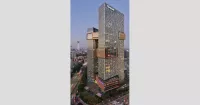
Tencent is a Chinese multinational technology conglomerate headquartered in Shenzhen...
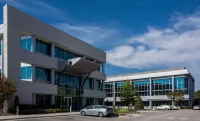
Epic Games founded by Tim Sweeney as Potomac Computer Systems...
PlayStation is a video game brand by Sony Interactive Entertainment...
Xbox is a video gaming brand owned by Microsoft Gaming...
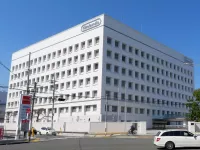
Nintendo is a Japanese multinational video game company based in...
Trending
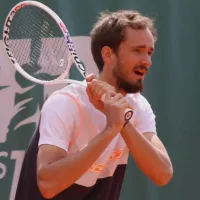
16 minutes ago Medvedev to clash with Auger-Aliassime in Dubai semifinals at Duty Free Tennis.
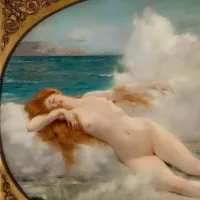
16 minutes ago Friday's Weather: Snow Returns After Brief Mildness, Lighter Winds Expected, End of Workweek.

17 minutes ago Lindsay Lohan reflects on troubled teen years and rebuilding her life in Dubai.
1 hour ago Ameren Prices $400M Senior Notes, $900M Bonds for Grid Investment, Reshaping Debt
2 hours ago Pokemon Celebrates 30 Years: A Cultural Phenomenon with Multimillion-Dollar Cards

2 hours ago Daylight Saving Time 2026: Prepare to set your clocks forward and lose sleep.
Popular

Jesse Jackson is an American civil rights activist politician and...

Barack Obama the th U S President - was the...

Susan Rice is an American diplomat and public official prominent...

XXXTentacion born Jahseh Dwayne Ricardo Onfroy was a controversial yet...

Michael Joseph Jackson the King of Pop was a highly...

Kashyap Pramod Patel is an American lawyer who became the...
